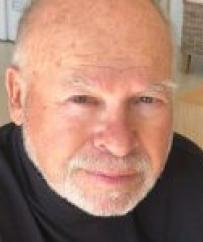In the aftermath of the LA Wildfires, Sam Hall Kaplan, renowned multimedia journalist, and author of Urban Odyssey: A Critic’s Search for the Soul of Cities and Self, reports on the sudden halt in rebuilding activity across fire-impacted communities like Malibu amidst escalating immigration enforcement actions. TPR excerpts this op-ed published originally by Common/Edge, in which Kaplan, drawing from on-the-ground observations and community accounts, highlights the critical role immigrant labor plays in both disaster recovery, community life, and the region’s broader economy.

"It’s a wonder that the protests in downtown Los Angeles actually were mostly peaceful."
Eerily quiet on June 13 were most of the thousands of rubble-and-ash sites of burned-out homes in fire-scarred Los Angeles communities, far from the downtown streets where protests of the bruising arrests of presumed undocumented workers had been playing out.
So I wrote for the prominent architecture and design website Common/Edge that can be accessed, Here, and is abridged below:
I had watched the Trumpian-spurred melee nonstop on television, remembering my days as a TV reporter in my maverick past, when I had covered many anti-war demonstrations in L.A. But the smell and burn of tear gas and the sounds of rifles firing rubber bullets into the crowd and the sharp screams of pain are not forgotten. Nor is the Nazi Germany I knew when growing up in the late 1930s and during World War II. The fear in the streets now is as frightening as then.
I went outside to see if there was any activity in Malibu as the first phase of the rebuilding efforts winds down, the clearing of the rubble by the Army Corp of Engineers and scattered private companies, and if there were any signs of new construction, and just how many of the victims will actually rebuild their homes in anticipation of returning?
As someone who has survived five wildfires in Malibu for three decades, I had not been optimistic, as I wrote in an email to Common Edge: “rebuild estimates are under 50%, maybe a third, for various reasons I can write about … hardened bureaucratic arteries, hardened insurance hearts, and just the time it would take. Woolsey Fire rebuilds still lag and that was six years ago. People just want to get on with their lives.”
But when I went out that morning there was an unsettling silence in the nearby construction and rebuild sites. They were vacant: no chattering in Spanish, no blaring radio music, no roach coach serving breakfast burritos.
The usual crews of laborers had not shown up. Then I received an email from my gardener, who does the heavy landscape lifting for me a few times a month. He was not scheduled but wanted to know if we had seen any ICE goons in Malibu hovering for a roundup and arrests (without warrants). His men were scared—staying in town, he added, not in their homes, but hiding from their Spanish-speaking neighborhoods, where they are an easy target for ICE. “We are so sad …” he texted my wife.
Then there was these comments from a neighbor posting on the active social media here: “If ICE raids continue here’s what to expect” and then went on list: “ No fire rebuilds happens, No brush clearing, No produce harvested, No one serving in local restaurants and business, The cost of everything skyrocketing …”
What followed were expressions of outrage; deprecations of a depraved, dumb president; concerns for the rebuild prospects, indeed for the entire California economy; and a number of, “see you at the No Kings rally here tomorrow!!!”
The most shocking email we received was from a friend who reliably reported that in the small neighborhood park in Santa Monica, Douglas on 24th Street, where we used to take our children, ICE agents in full gear had shockingly arrested and taken away several nannies, leaving their toddler charges with others to wait to be picked up by the parents who presumably were notified. (Mayor of SM subseqently denied, this happened , friend said it did. I was not there to witness.)
It’s a wonder that the protests in downtown Los Angeles actually were mostly peaceful.
Angelenos are furious at being accused of rallying for criminals and being confronted by an armed military. We know the longstanding local immigrant population—one-fifth of it said to be illegal—not as statistics, but as real and good people. They are hardworking: the laborers, landscapers, dishwashers, car washers, sewing machine operators, bank clerks, people struggling to better their lives and those of their families. Indeed, the son of a former gardener of mine is studying to become a doctor; a daughter of another, a special needs teacher; and his wife, a cleaning woman once, now a certified caregiver. The list of people and friends known for working hard and doing good is infinitely long.
We don’t think of them as “immigrants” or Hispanics, but as friends and neighbors (and taxpayers all!). We cry for them, those who make us smile with hearty daily “Holas!,” and we cry for our lost America.
- Log in to post comments



